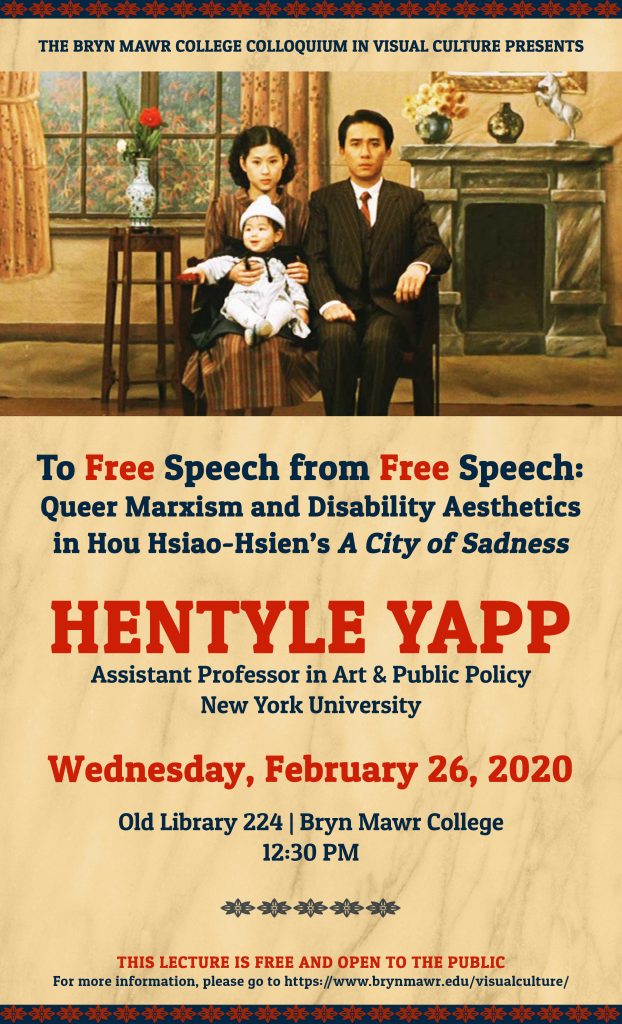Assistant Professor in Art & Public Policy
New York University
“To Free Speech from Free Speech: Queer Marxism and Disability Aesthetics in Hou Hsiao-Hsien’s A City of Sadness”
Liberal forms of speech are glorified as the primary political tool by which to achieve representation. Michel Foucault notably located an early genealogy of such practices of speaking truth to power in the Stoic tradition of parrhesia. However, a problematic arises in which centrism demands that “all sides matter” whereby, as demonstrated today, alt-right and radical leftists are seen as equally illiberal and asking for too much. This talk asks what might happen if we free the concept of speech from free speech itself? What might speech look like if not primarily informed through a liberal democratic tradition?
To explore these questions, I turn to disability, particularly deafness and muteness, to grapple with formulations of speech that do not fit under truth, transparency, and liberalism. In particular, I examine Taiwanese director Hou Hsiao-Hsien’s classic and lauded film A City of Sadness (1989) and focus on its disability aesthetics. This film, which won the Golden Lion prize at the Venice Film festival, displaces sound and speech during Taiwan’s passage from Japanese colonial occupation to mainland Chinese colonization following the second world war. Rather than depicting true images of state violence or privileging historical realism, the director notably develops an aesthetic of opacity and illegibility. Hou’s formal aesthetics, in other words, provide a political critique that does not rely on truth, repair, and recognition. Ultimately, this film provides a space to trace a “queer Marxist” genealogy across two Chinas, as informed by the work of Petrus Liu.

